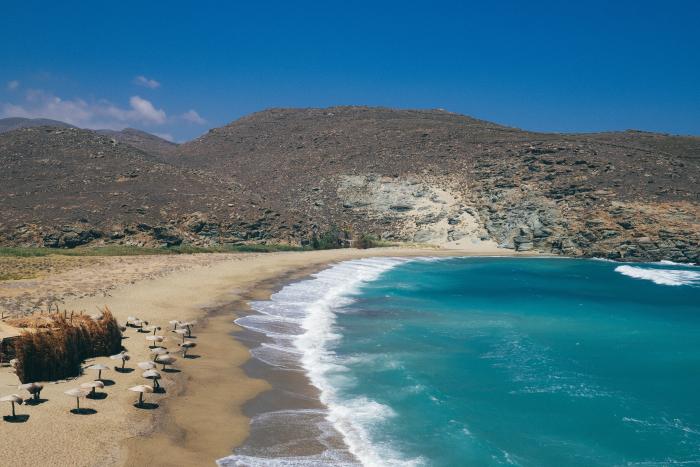
Island facts
Tilos is a Greek island located in the South Aegean Sea. It belongs to the complex of the Dodecanese Islands. There are around 500 permanent residents on Tilos, which is increased by 4 to 5 times during the summer. The island's main economic field is tourism.
How does the island cover its need for energy?
The island covers large shares of its electricity needs through local renewable energy systems power generation, a hybrid wind-PV battery station of 1 MW. It is interconnected with the island systems of Kos and Kalymnos. There is a ferry connection to Kos and Rhodes (2 h travel) and also a connection to Piraeus (14 h travel). Transportation locally is mainly by car and bike - there is also a frequent bus connection between the two main villages of Livadia and Megalo Chorio. The island has embraced clean e-mobility, introducing EV charging points and is gradually replacing conventional municipality vehicles. Other uses like heating and cooling for buildings rely on electricity (mostly A/C) and local biomass for heating.
Tilos Island's energy transition
Over the recent years, Tilos island accelerated its clean energy transition at a remarkable pace, enabled by the strong commitment of the local Municipality, the pro-environmental culture and mindset of Tilos citizens, and the implementation locally of innovative demonstration projects, such as the Horizon 2020 TILOS project. By embracing community-scale wind and solar, battery energy storage and advanced energy management and metering, Tilos achieves high shares of renewables in the local electricity sector. At the same time, Tilos extends its efforts to e-mobility and renewable-driven EV charging infrastructure, sustainable water management and energy efficiency in the local public lighting sector.
As part of the 30 for 2030 call the following activities are planned:
The upgrade of the hybrid power station will involve an analysis of the legal framework and regulatory code necessary to enable and remunerate black start and grid-forming capabilities from the hybrid power station, which incorporates solar photovoltaic systems, wind, and storage. Support will be provided in discussions with the relevant stakeholders.
In relation to smart marina and electric vehicle (EV) charging stations, a feasibility study will be conducted to transform the local marina into a smart marina. This will include an analysis of the potential for self-production and storage of the energy required by boats, buildings, and electric land vehicles, along with an overview of possible strategies for maximising self-sufficiency and self-consumption.
The energy efficiency in buildings initiative will entail a pre-feasibility study focused on the energy renovation of the local building stock. This will include the development of an energy model for archetypal buildings and the identification of key potential interventions, taking into account national legislation and standards. An economic and financial analysis of these interventions will also be carried out, culminating in the development of a roadmap for improving the energy efficiency of buildings on the island.
